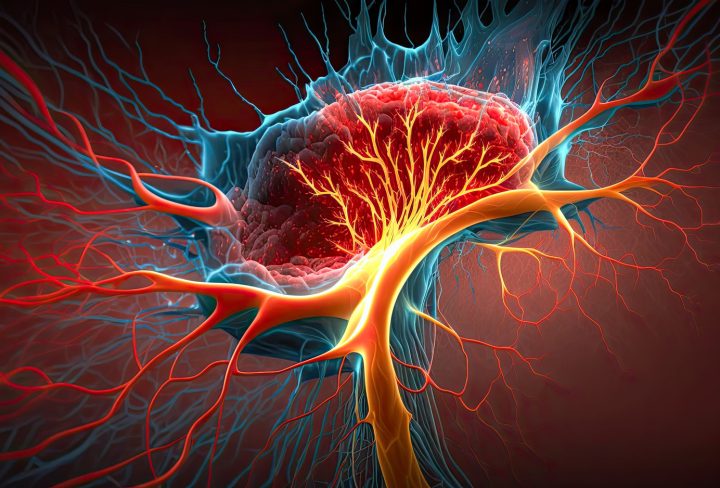Arteriovenous Malformation (AVM) in the brain is a complex, neurovascular condition that presents unique challenges and considerations for neurologists. This blog aims to delve into the intricacies of brain AVMs, highlighting the latest advancements and treatment modalities.
Epidemiology and Pathophysiology
Brain AVMs are rare, occurring in less than 1% of the population. They consist of a tangle of abnormal blood vessels connecting arteries and veins in the brain. The absence of capillaries in these networks leads to high-pressure blood flow, increasing the risk of hemorrhage, seizures, and neurological deficits.
Symptoms and Diagnosis
Symptoms of brain AVMs can vary, ranging from headaches and seizures to more severe neurological impairments. The diagnosis is often confirmed through imaging techniques such as MRI, MRA, and cerebral angiography, which provide detailed insights into the AVM’s structure and potential risks.
Treatment Options
Treatment strategies for brain AVMs must be tailored to each patient, depending on the size, location, and characteristics of the malformation. Options include:
Conservative Management: Observation and medical therapy, primarily for asymptomatic AVMs or those with high surgical risks.
Surgical Resection: Indicated for accessible AVMs with a high risk of bleeding. Requires meticulous planning and microsurgical techniques.
Endovascular Therapy: Embolization techniques can reduce AVM size and bleeding risk, often used pre-operatively.
Radiosurgery: Stereotactic radiosurgery is a non-invasive option, effective for smaller AVMs or as an adjunct to other treatments.
Advancements and Research
Recent advancements in neuroimaging and microsurgical tools have significantly improved the management of brain AVMs. Ongoing research into genetic factors and angiogenesis provides hope for novel therapeutic approaches.
Conclusion
Brain AVM management requires a multidisciplinary approach, encompassing neurologists, neurosurgeons, and interventional radiologists. With advancements in diagnostic and therapeutic modalities, the prognosis for patients with AVMs continues to improve.
Keywords:
- Arteriovenous Malformation
- Brain AVM
- Neurovascular condition
- Hemorrhage risk
- Seizures
- Neurological deficits
- MRI
- MRA
- Cerebral angiography
- Microsurgical techniques
- Endovascular therapy
- Radiosurgery
- Neuroimaging
- Genetic research in AVM
- Angiogenesis in AVM
- Multidisciplinary approach in AVM treatment

